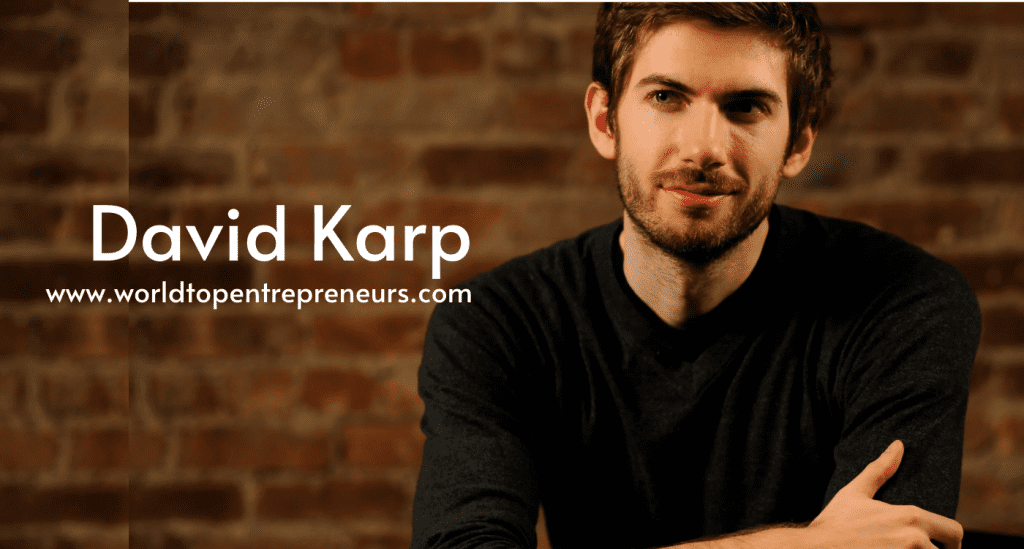In the ever-evolving landscape of technology and productivity tools, Christian Reber stands out as a pivotal figure whose innovations have redefined how we organize and manage our daily lives. As the founder of 6Wunderkinder and the driving force behind the popular productivity app Wunderlist, Reber has made a significant impact on the world of digital productivity. His journey from a young entrepreneur with a vision to leading a globally recognized tech company is a testament to his dedication, creativity, and entrepreneurial spirit.
Early Life and Career Beginnings
Christian Reber’s journey into the world of technology and productivity began in Berlin, Germany. Growing up, Reber was always fascinated by the potential of technology to solve real-world problems. His early exposure to computers and software ignited a passion for technology and entrepreneurship that would shape his future endeavors.
After completing his education at the Technical University of Berlin, where he studied computer science, Reber began his professional career in the tech industry. His initial roles involved working on various software projects and gaining experience in product development. These early experiences provided him with valuable insights into the technology landscape and the challenges faced by both developers and users.
Reber’s entrepreneurial spirit became evident when he co-founded his first startup. This venture, though modest in scale, allowed him to explore his interests in technology and business. The experience provided him with a deeper understanding of the intricacies of running a tech company and laid the foundation for his future successes.
The Birth of 6Wunderkinder
The turning point in Christian Reber’s career came in 2010 when he founded 6Wunderkinder, a Berlin-based startup focused on creating innovative productivity tools. The company’s name, “6Wunderkinder,” translates to “6 Wonderful Children,” reflecting the team’s enthusiasm and dedication to creating exceptional products.
At the heart of 6Wunderkinder was a singular vision: to build a productivity app that would transform the way people manage their tasks and collaborate with others. Reber and his team were driven by the belief that technology could simplify and enhance the organization of everyday tasks, making life more manageable and efficient.
In 2011, 6Wunderkinder introduced Wunderlist, a task management and to-do list application that quickly garnered attention for its intuitive design and user-friendly interface. Wunderlist was designed to help individuals and teams keep track of their tasks, set reminders, and collaborate seamlessly. The app’s simple yet powerful features made it a popular choice for users seeking a more effective way to manage their productivity.
Wunderlist’s success was a testament to Reber’s vision and the hard work of the 6Wunderkinder team. The app quickly gained a loyal user base and received positive reviews from technology critics and users alike. Its clean design, cross-platform compatibility, and collaborative features set it apart from other productivity tools on the market.
Innovation and Growth: Wunderlist’s Impact
Wunderlist’s impact on the productivity app market was profound. The application’s success was driven by several key features that resonated with users:
- Cross-Platform Synchronization: Wunderlist was available on multiple platforms, including iOS, Android, Windows, and macOS. This cross-platform compatibility allowed users to access their tasks and to-do lists from any device, ensuring seamless synchronization across their devices.
- User-Friendly Interface: The app’s intuitive design made it easy for users to create and manage tasks. The clean and straightforward interface minimized distractions and allowed users to focus on what mattered most.
- Collaborative Features: Wunderlist enabled users to share lists and collaborate with others. This feature was particularly valuable for teams and families, as it allowed them to coordinate tasks and stay organized together.
- Reminders and Notifications: The app included reminder and notification features that helped users stay on top of their deadlines and important tasks. Users could set due dates, reminders, and recurring tasks to ensure nothing was overlooked.
- Task Organization: Wunderlist offered robust task organization features, including the ability to create folders, categorize tasks, and add notes. This organization helped users keep their tasks structured and manageable.
The success of Wunderlist was not just in its features but in its ability to address real-world productivity challenges. The app provided users with a practical and effective solution for managing their tasks and staying organized, leading to widespread adoption and positive feedback.
Acquisition by Microsoft and Its Aftermath
In 2015, 6Wunderkinder and its flagship product, Wunderlist, attracted the attention of Microsoft. The tech giant recognized the potential of Wunderlist and acquired 6Wunderkinder in a strategic move to enhance its own productivity tools. The acquisition was a significant milestone for Reber and his team, validating their efforts and bringing their innovation to a broader audience.
Following the acquisition, Reber and his team continued to work on Wunderlist within Microsoft, contributing to the integration of the app into Microsoft’s ecosystem. However, the acquisition also marked a transition period, as Microsoft eventually decided to phase out Wunderlist in favor of its own task management tool, Microsoft To Do.
Despite the end of Wunderlist as a standalone product, the impact of Reber’s work continued to be felt. The principles and design philosophies behind Wunderlist influenced the development of Microsoft To Do, ensuring that the legacy of Wunderlist lived on in Microsoft’s productivity offerings.
Entrepreneurial Spirit and Legacy
Christian Reber’s journey with 6Wunderkinder and Wunderlist reflects his entrepreneurial spirit and dedication to innovation. His ability to identify a gap in the market and develop a solution that addressed users’ needs was a key factor in the success of Wunderlist. Reber’s vision for creating a productivity app that was both functional and user-friendly set a new standard in the industry.
The success of Wunderlist demonstrated the potential for technology to transform how people manage their tasks and collaborate with others. Reber’s work has had a lasting impact on the productivity app market, inspiring other entrepreneurs and developers to explore new ways to enhance productivity and organization.
Beyond the success of Wunderlist, Reber’s influence extends to his broader contributions to the tech industry. His work has been recognized for its emphasis on user experience, simplicity, and effective task management. Reber’s approach to product development and his focus on solving real-world problems continue to inspire others in the technology and entrepreneurship communities.
Looking Ahead: Future Endeavors
As Christian Reber’s career continues to evolve, his focus remains on exploring new opportunities and contributing to the technology landscape. While Wunderlist and 6Wunderkinder were significant milestones, Reber’s journey is far from over. His entrepreneurial spirit and passion for innovation drive him to seek out new ventures and challenges.
Reber’s experience with Wunderlist has provided him with valuable insights into the technology and productivity markets. He continues to explore ways to leverage technology to address emerging needs and create meaningful solutions. His commitment to innovation and user-centric design remains at the forefront of his endeavors.
In addition to his work in technology, Reber is also involved in mentoring and supporting aspiring entrepreneurs. His experience and insights are invaluable to those looking to navigate the challenges of starting and growing a tech company. Through mentorship and advisory roles, Reber shares his knowledge and helps others realize their entrepreneurial dreams.
Conclusion: Christian Reber’s Impact on Productivity and Technology
Christian Reber’s journey from founding 6Wunderkinder to creating the widely acclaimed Wunderlist app is a testament to his vision, creativity, and dedication to the world of technology and productivity. His work has had a profound impact on how people manage their tasks, collaborate with others, and stay organized.
Reber’s ability to identify a need in the market and develop a solution that resonated with users set a new standard for productivity apps. The success of Wunderlist demonstrated the potential for technology to enhance everyday life and provided a valuable tool for individuals and teams seeking to improve their productivity.
Even after the acquisition by Microsoft and the eventual transition to Microsoft To Do, the legacy of Wunderlist and Reber’s contributions to the tech industry continue to be felt. His approach to product development, user experience, and innovation serves as an inspiration to entrepreneurs and developers around the world.
As Christian Reber looks to the future, his commitment to exploring new opportunities and contributing to the technology landscape remains strong. His work has left an indelible mark on the world of productivity apps, and his influence continues to shape the industry. Through his journey, Reber has shown that innovation and dedication can lead to transformative solutions that make a meaningful difference in people’s lives.





















